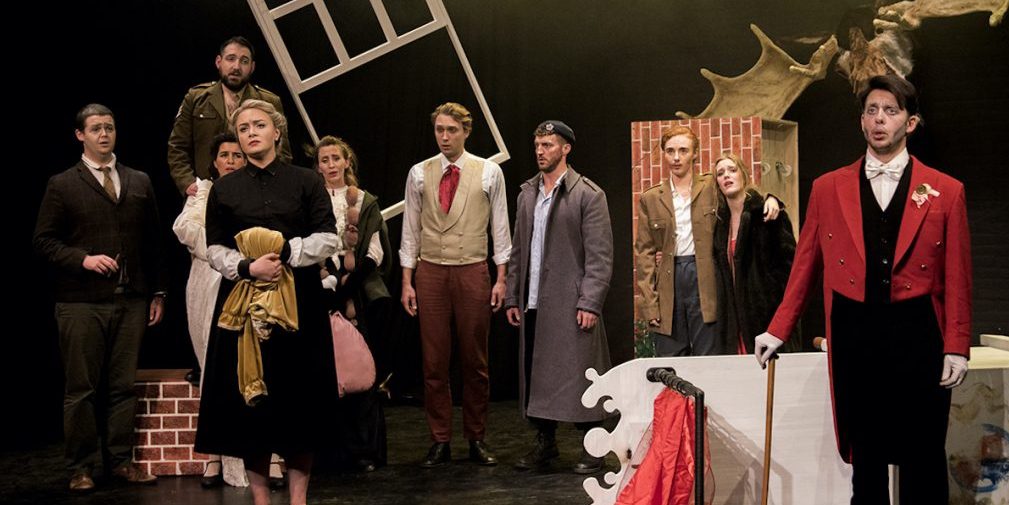Mozart’s masterpiece, the Marriage of Figaro, is a work of such musical beauty and comic invention that it can always be counted on to charm an audience. This intriguing new version by Julia Mintzer for the admirable Hampstead Garden Opera certainly works the Mozartian magic – but it also adds some new insights to a story that is so rich that even today 235 years after its first performance it can yield fresh meanings. With every radical re-telling, new ideas can reveal new insights but they can obscure important themes too. The somewhat strained parallels between Mozart’s Europe in 1786 and England in 1915, where Mintzer sets this version, make for some comic strokes but miss out some of the more human and humane ideas on which other versions allow us to focus. For my taste this version is very funny but not very moving but bravo to HGO for backing Mintzer’s vision and for engaging dramaturg Ben Poore to work with Mintzer on the production – their programme notes are well worth reading.
The opera should in all decency be called the Marriage of Figaro and Susanna. The story is about the triumph of two clever servants who outwit their lecherous master Count Almaviva and celebrate their marriage while thwarting his dreams of seducing Susanna before she becomes Figaro’s wife. All the action takes place in the Almaviva mansion on the day of the wedding and other key characters are Rosina, the Count’s long-suffering wife and Cherubino, a young page. A suite of servants and hangers-on help to ensure that the “bedroom farce” drama is full of twists and turns but it is Mozart’s genius that lifts this cheerful nonsense to the heights, giving the singers music of extraordinary beauty and emotional depth, even in moments of comic absurdity.
HGO has a proud tradition of giving young singers a chance to shine in fully-staged productions and there are some potential high fliers in the performance I saw (there are two alternating casts) Thomas Chenhall, a recent graduate from the Royal Academy of Music, has a fine baritone voice of real power – and he can back it up when needed with dramatic passion. I loved his performance of Vedro mentr’io sospiro as he swears that his servant will not enjoy a ‘treat’ that is denied to him. Camilla Harris as the Countess gave all the sadness and gravity needed for Porgi amor and, though I thought the direction made her and Susanna behave like pals rather than mistress and maid, it did yield a wonderful moment when she starts to imitate Susanna’s less refined voice in Act 4 and the maid is outraged. Shafali Jalota was a fine Susanna, as much the source of the Count’s undoing as her fiancé, and Louis Hurst was a vigorous and inventive Figaro with a deeper bass baritone voice than I am used to for this role but which fitted the military background – sergeant rather than barber perhaps? Esme Bronwen-Smith was a persuasively confused Cherubino. A final word for Becca Marriott as a very unusual black marketeer Marcellina – well sung and very funny.
The stage at Jacksons Lane is small but the inventive design gave us lots to look at, though I never quite came to terms with the mobile booth in which the Count usually arrived. And the strobe-lit Zeppelin raid that disrupted the wedding ceremony and reduced the mansion to metaphorical ruins was visually arresting but dramatically confusing. Mintzer followed the new convention of ending the opera without any real reconciliation between the Count and Countess despite the message in the music – I am all for a suspension of modern disbelief here. Despite these reservations, I welcome the HGO team’s musical mastery and their obvious desire to refresh this old masterpiece and to send the audience away with a lot to talk about.

